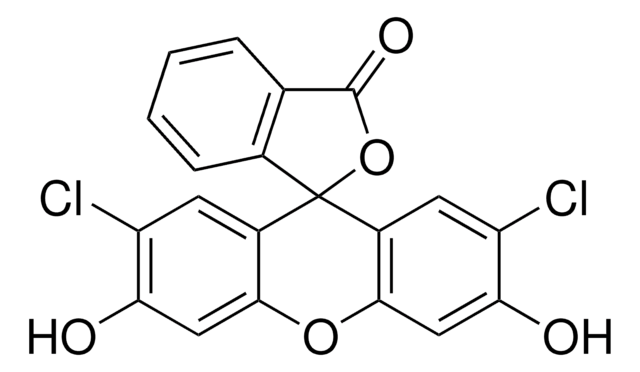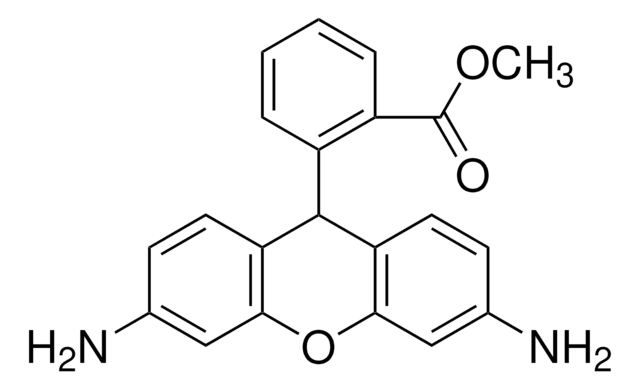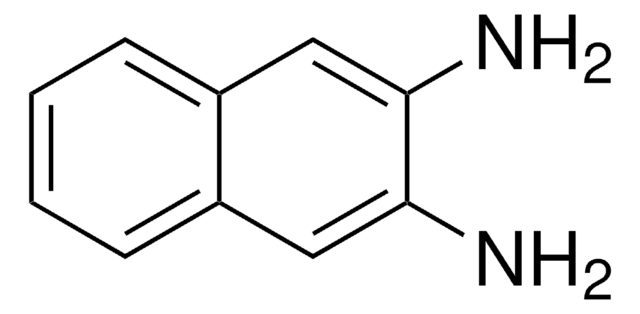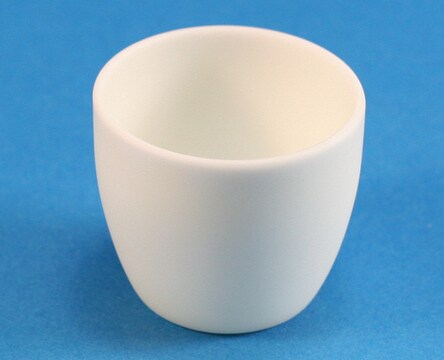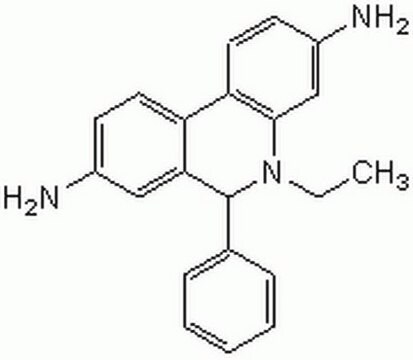D6665
2′,7′-Dichlorofluorescein
suitable for use as an indicator in chloride titration, ~90% (TLC), powder
Synonym(s):
Dichlorofluorescein; Fluorescein 27
About This Item
Recommended Products
Quality Level
Assay
~90% (TLC)
form
powder
mp
280 °C (dec.) (lit.)
solubility
ethanol: 25 mg/mL
density
0.79 g/cm3
application(s)
diagnostic assay manufacturing
hematology
histology
storage temp.
room temp
SMILES string
Oc1cc2Oc3cc(O)c(Cl)cc3C4(OC(=O)c5ccccc45)c2cc1Cl
InChI
1S/C20H10Cl2O5/c21-13-5-11-17(7-15(13)23)26-18-8-16(24)14(22)6-12(18)20(11)10-4-2-1-3-9(10)19(25)27-20/h1-8,23-24H
InChI key
VFNKZQNIXUFLBC-UHFFFAOYSA-N
Looking for similar products? Visit Product Comparison Guide
Related Categories
General description
Application
Storage Class Code
11 - Combustible Solids
WGK
WGK 3
Flash Point(F)
Not applicable
Flash Point(C)
Not applicable
Personal Protective Equipment
Certificates of Analysis (COA)
Search for Certificates of Analysis (COA) by entering the products Lot/Batch Number. Lot and Batch Numbers can be found on a product’s label following the words ‘Lot’ or ‘Batch’.
Already Own This Product?
Find documentation for the products that you have recently purchased in the Document Library.
Customers Also Viewed
Our team of scientists has experience in all areas of research including Life Science, Material Science, Chemical Synthesis, Chromatography, Analytical and many others.
Contact Technical Service


